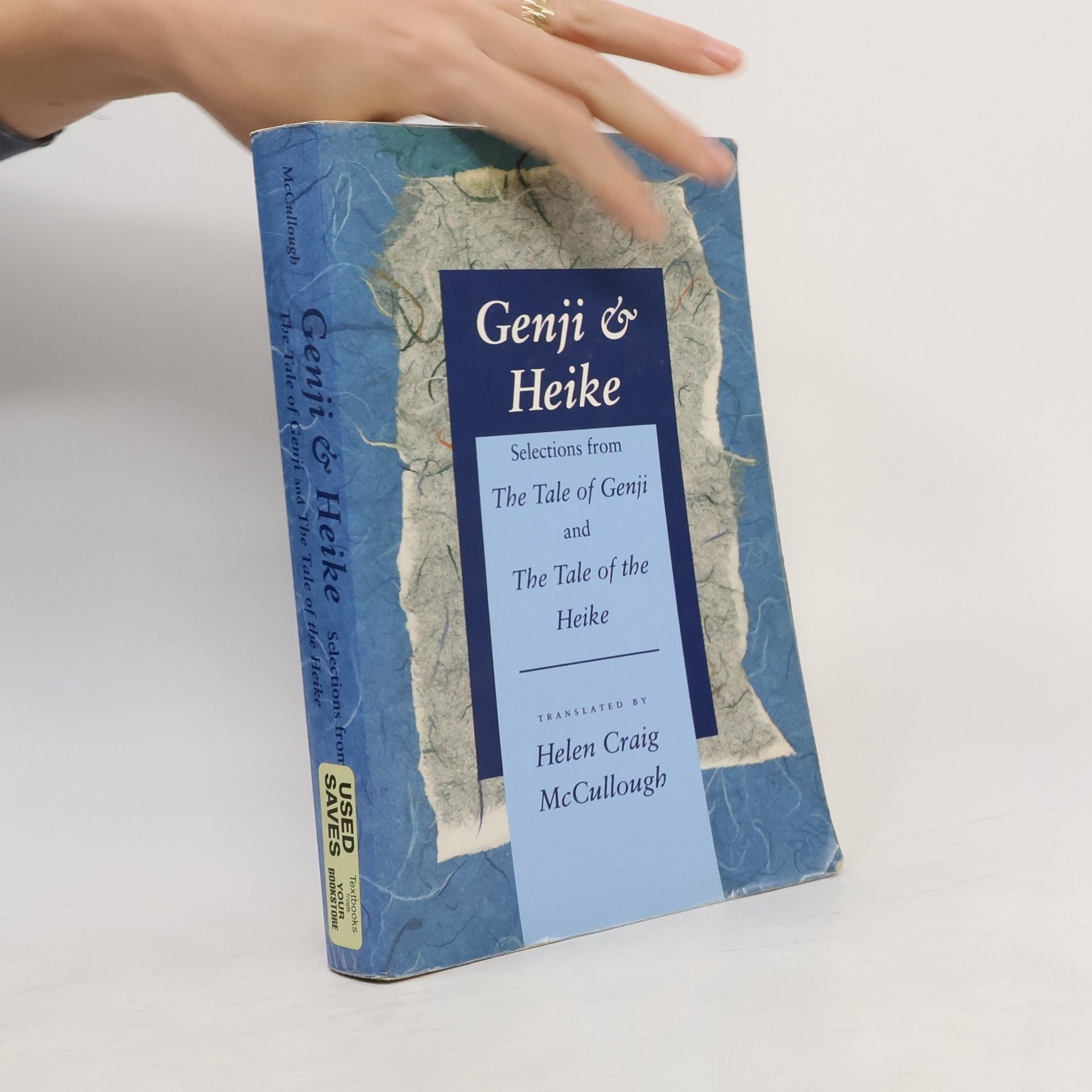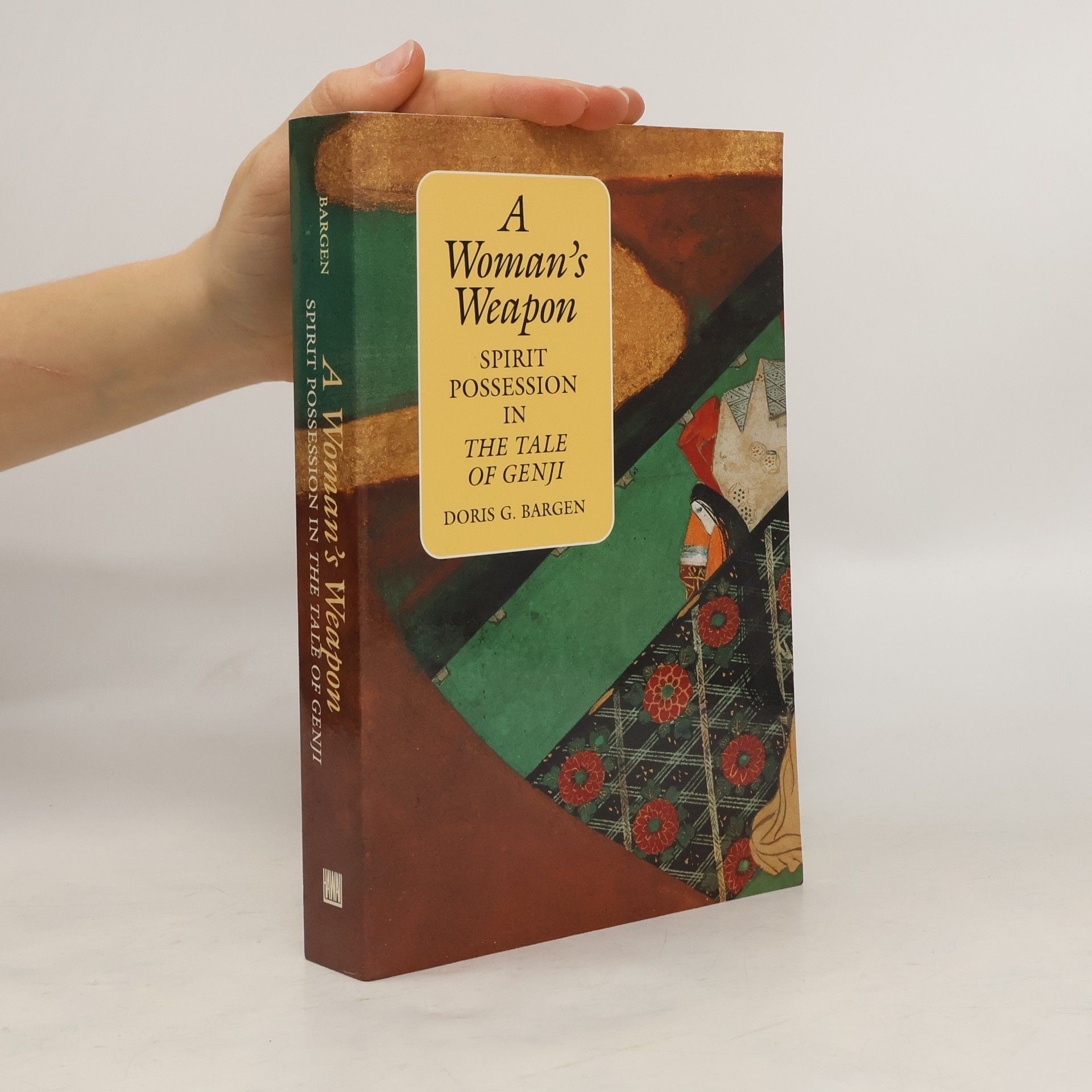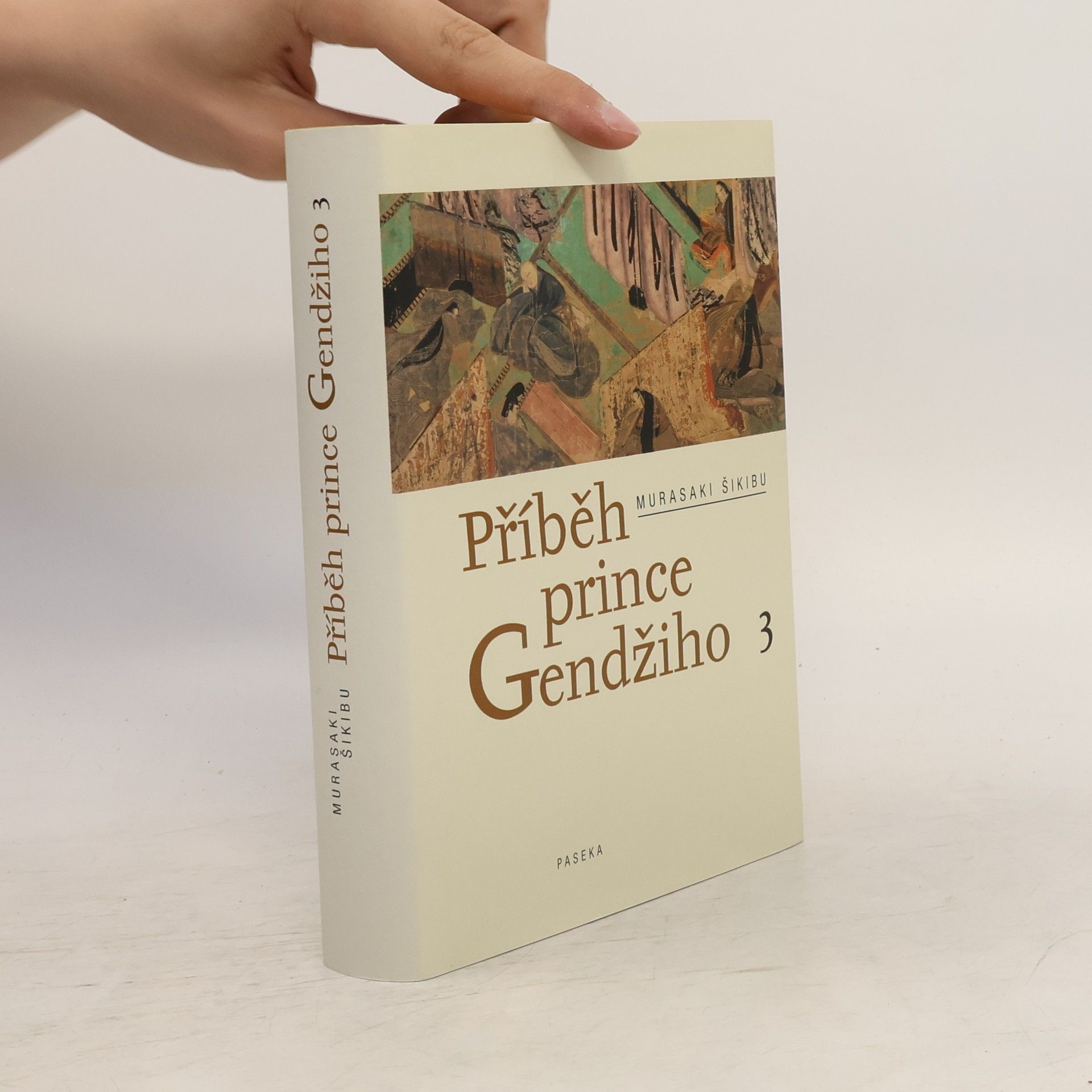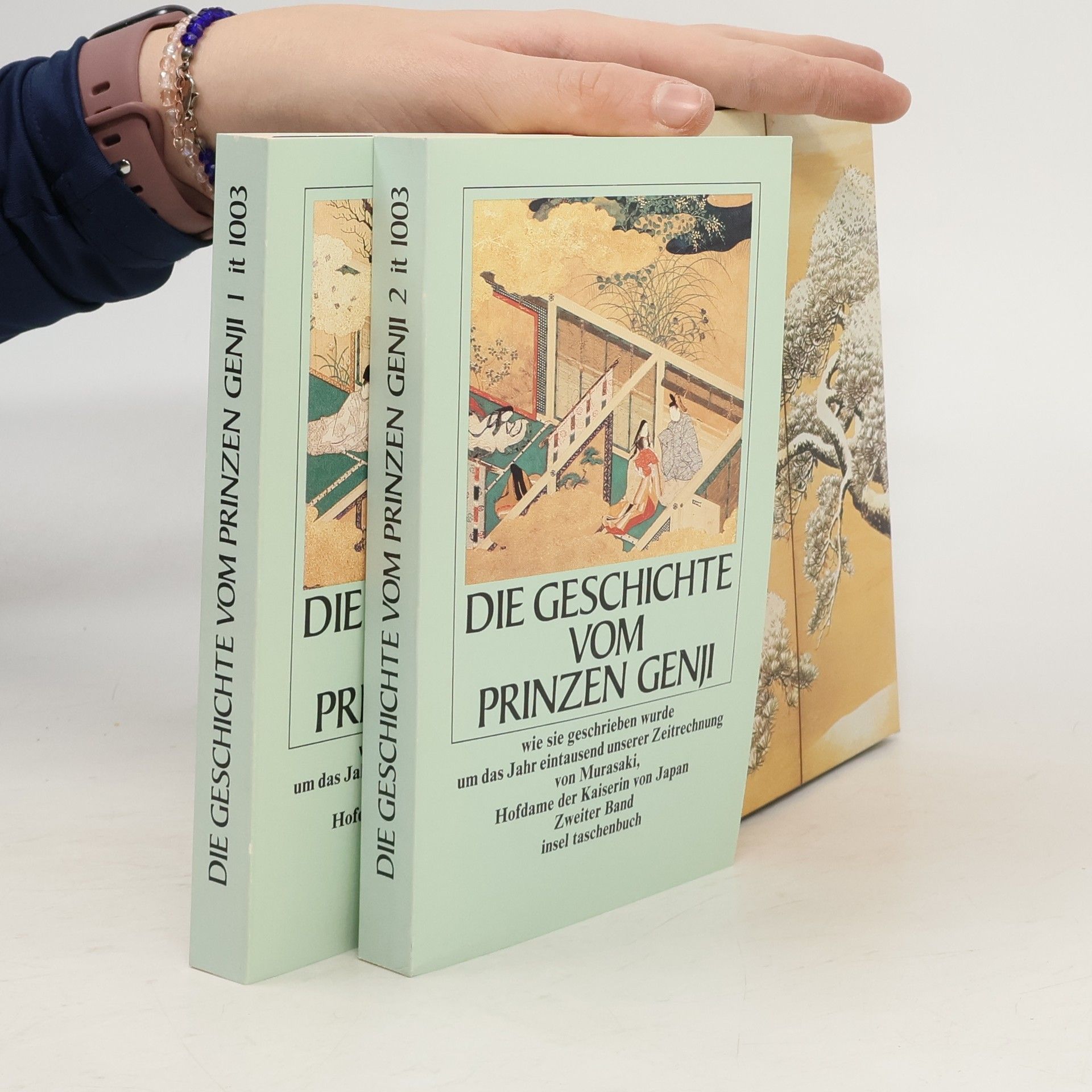Murasaki Šikibu Livres
Murasaki Shikibu était une romancière, poétesse et dame de compagnie japonaise de la période Heian. Elle est célébrée comme l'auteur de l'un des romans les plus anciens et les plus célèbres de l'histoire humaine. Sa prose, écrite en japonais classique, est louée pour ses portraits psychologiques complexes et sa représentation nuancée de la vie aristocratique de son époque. Son héritage littéraire réside dans ses profondes perspectives sur la nature humaine et son utilisation magistrale de la langue, qui a influencé les générations d'écrivains suivantes.






The Tale of Genji (Abridged)
- 138pages
- 5 heures de lecture
"The Tale of Genji" by Lady Muraski is one of the world's most influential novels. As the first psychological novel, "The Tale of Genji" delves into the motivations and thoughts of the main characters, which had never been done in previous novels. The famous Japanese story is about Genji, the son of an emperor. When his mother died, Genji's father married another woman who greatly resembled Genji's mother. However, Genji fell in love with his new stepmother, causing problems between him and his own wife. He pursues a number of affairs, and is eventually exiled from the Capitol to a small, rural town. While Lady Murasaki did not base "The Tale of Genji" on a true story, she was inspired by a Minister in the royal court. She wrote the story in small installments for the ladies of the court, which might explain why the story was never "finished;" Lady Murasaki intended to keep the stories going as long as she possibly could. She also created some of the most memorable female characters in literature. As such, "The Tale of Genji" is widely considered to be one of the greatest works in the Japanese literature canon, as well as one of the most influential works of storytelling. Contained in this volume is the abridged translation of Suematsu Kencho.
This text presents an examination of Murasaki Shikibu's 11th-century classic The Tale of Genji. The author explores the role of possessing spirits from a female viewpoint, and considers how the male protagonist is central to determining the role of these spirits.
The Tale of Genji
- 256pages
- 9 heures de lecture
Completed in the early 11th century, The Tale of Genji is considered the supreme masterpiece of Japanese prose literature, and one of the world's earliest novels. A work of great length, it comprises six parts, the first part of which (also called The Tale of Genji) is reprinted here. The exact origins of this remarkable saga of the nobility of Heian Japan remain somewhat obscured by time, although its author, Lady Shikibu Murasaki, presumably derived many of her insights into court life from her years of service with the royal family. The novel centers on the life and loves of the prince known as "the shining Genji." Far more than an exotic romance, however, the tale presents finely drawn characters in realistic situations, set against a richly embroidered tapestry of court life. Moreover, a wistful sense of nostalgia pervades the accounts of courtly intrigues and rivalries, resulting in an exquisitely detailed portrayal of a decaying aristocracy. Vibrant in its poetry and wordplay, subtle in its social and psychological observations, this work ranks in stature and significance with such Western classics as Cervantes' Don Quixote and Proust's Remembrance of Things Past. This inexpensive edition, featuring Arthur Waley's splendid translation of the first of the six-part series, offers readers a memorable taste of one of the world's first and greatest novels.
The Diary of Lady Murasaki
- 80pages
- 3 heures de lecture
Derived from the journals of an empress's tutor and companion, this unique book offers rare glimpses of court life in eleventh-century Japan. Lady Murasaki recounts episodes of drama and intrigue among courtiers as well as the elaborate rituals related to the birth of a prince. Her observations, expressed with great subtlety, offer penetrating and timeless insights into human nature. Murasaki Shikibu (circa AD 973–1025) served among the gifted poets and writers of the imperial court during the Heian period. She and other women of the era were instrumental in developing Japanese as a written language, and her masterpiece, The Tale of Genji, is regarded as the world's first novel. Lady Murasaki's diary reveals the role of books in her society, including the laborious copying of texts and their high status as treasured gifts. This translation is accompanied by a Foreword from American poet and Japanophile Amy Lowell.
Genji & Heike
Selections from The Tale of Genji and The Tale of the Heike
- 500pages
- 18 heures de lecture
The Tale of Genji and The Tale of the Heike are two seminal works of classical Japanese prose. This abridged edition offers a one-volume selection suitable for survey courses in classical Japanese literature or world literature, as well as for general readers intimidated by the complete texts. The translator has chosen representative excerpts to create coherent and aesthetically pleasing narratives. Often regarded as the world's first novel, The Tale of Genji, by Murasaki Shikibu, poetically captures the aristocratic life of eleventh-century Japan, a time of rich cultural development. This translation emphasizes key events in Genji's life, particularly his profound relationship with Murasaki, and includes significant portions from 10 of the 41 chapters, notably the "Broom Tree" chapter, which encapsulates the book's central themes. Conversely, The Tale of the Heike portrays the late twelfth-century political machinations and battles that led to the decline of the Kyoto court and the rise of the Minamoto (Genji) clan's military government. Its theme of the impermanence of worldly affairs resonates with Genji, yet its oral composition and vigorous language starkly contrast with Genji's elegant tone. The selections from Heike comprise about 40 percent of the work and are drawn from a celebrated complete edition. To aid readers, the translator has included introductions, headnote summaries, and supplementary materials, along wi
Este segundo volumen de La historia de Genji comprende los ultimos trece capitulos (42-54) de la obra. La narracion del ultimo tercio de la novela se reanuda tras un lapso de ocho años desde la muerte de Genji. Volvemos a encontrarnos con Karou, hijo tardio de Genji, que segun dicen desprende un olor maravilloso desde su nacimiento, y tambien a Niou, el nieto de Genji. Los dos jovenes son grandes amigos, pero tambien seran duros rivales en el amor; primero, con las hijas de un principe viudo que vive retirado en Uji junto a sus dos hijas; y luego, con la bella Ukifune, que se encontrara atrapada entre dos pretendientes. La sucesion de amores imposibles y la desdicha que estos acarrean, constituiran el melancolico telon de fondo con el que concluye esta obra cumbre de la literatura japonesa. Nada se ha escrito mejor en ninguna literatura, dijo de ella Marguerite Yourcenar. Es comparable a los grandes clasicos occidentales como Cervantes o Balzac, dijo Octavio Paz. No es que sea mejor o mas memorable o intensa que la obra de Cervantes, pero si mas compleja, observo Borges. Pero esta obra no necesita elogios previos, necesita solamente que el lector llegue a ella y empiece a leerla. Algo inasible le empujara a seguir. Ese algo es su movimiento.
Život prince Gendžiho se chýlí ke konci a on se stále častěji zamýšlí nad svým životem a nad tím, zdali ho žil, jak měl. Zatímco on stále setrvává na tomto světě, u dvora, svět kolem něj se mění a jeho často napadá, zdali by neměl opustit světské dění a před svou smrtí se oddat Buddhovi... Příběh prince Gendžiho se řadí mezi jedny z nejvýznamějších světových literárních památek a to hlavně proto, že zde autorka dokázala i ve své době zručně vykreslit psychologický vývoj hlavní postavy. Kniha je také skvělou příležitostí, jak nahlédnout k heianskému dvoru, seznámit se s jeho tradicemi i každodenním životem.
Nachw. Michael, Freidrich. 2 Bände. cpl. in Kass.


